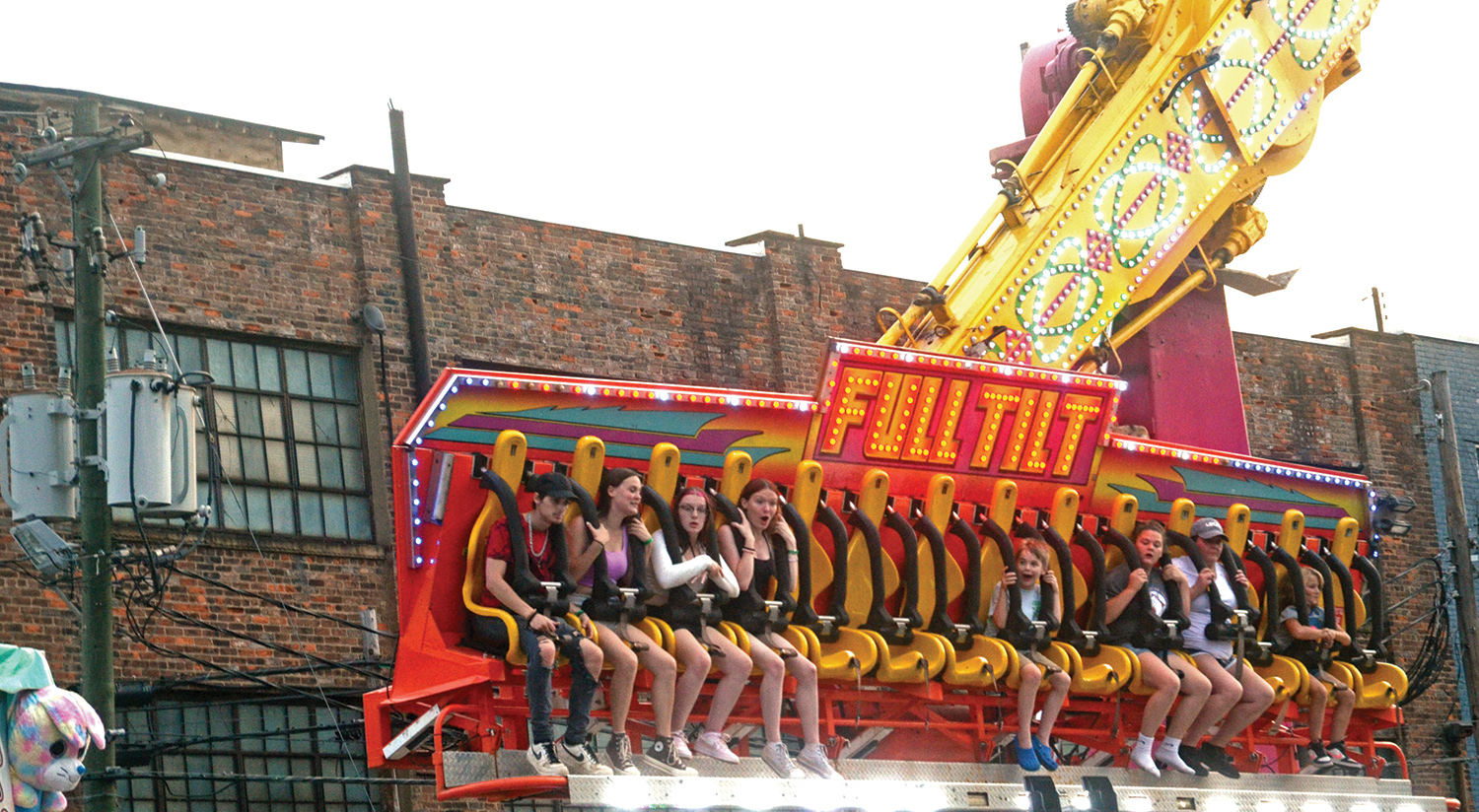U.S. troops again fire on anti-American protesters
Published 12:00 am Wednesday, April 30, 2003
BAGHDAD, Iraq (AP) - For the second time this week, U.S. soldiers fired on anti-American protesters today in the city of Fallujah; the mayor said two people were killed and 14 wounded. Defense Secretary Donald H. Rumsfeld became the first top Bush administration official to visit Iraq since Saddam Hussein's ouster.
Operating out of a palace once used by Saddam, Rumsfeld told Iraqis the United States is eager to return the country to their control.
''Iraq belongs to you,'' he said in a message taped for radio and television broadcast. ''The coalition has no intention of owning or running Iraq.''
The shooting in Fallujah, 30 miles west of Baghdad, occurred less than 48 hours after gunfire during a demonstration Monday night that hospital officials said killed 13 Iraqis.
About 1,000 people marched down the city's main street today to protest the earlier incident, stopping in front of a battalion headquarters of the U.S. Army's 82nd Airborne Division.
American officers said U.S soldiers in the compound and in a passing convoy opened fire after some protesters started throwing rocks and some shots were fired at the troops.
''The evildoers are deliberately placing at risk the good civilians,'' said Lt. Col. Tobin Green of the 3rd Armored Cavalry Regiment. ''These are deliberate actions by the enemy to use the population as cover.''
Fallujah's mayor, Taha Bedaiwi al-Alwani, said two people were killed and 14 wounded, and he asked for an investigation and compensation for the victims. He added that U.S. soldiers have been asked to stay away from mosques, residential areas and other sensitive places; the Americans agreed to study the request.
''Many people believe these are occupying forces. And many of them are still cautious until they see their intentions,'' said al-Alwani, a former Iraqi exile and opponent of Saddam's regime.
Local officials in Fallujah said they saw or heard no shooting from among the protesters.
The incident, coupled with the deaths Monday outside a school in Fallujah, are increasing tension as American forces try to keep the peace in Iraq and win the trust of its people.
U.S. officers met with Fallujah's mayor and local Muslims clerics in hopes of averting further violence. Several dozen demonstrators clustered angrily outside the town hall where the talks took place; ''Get out, get out,'' some chanted.
Emerging from the meeting, the imam of the Grand Fallujah Mosque, Jamal Shaqir Mahmood, said the Americans insisted the U.S. troops were needed to provide security, ''but the people of Fallujah told them we already have security.''
In the incident Monday night, U.S. Central Command said paratroopers of the 82nd Airborne were shot at by about 25 armed civilians mixed within an estimated 200 protesters outside a compound troops were occupying. Demonstrators said no gunfire came from their ranks.
Rumsfeld, nearing the end of a trip to several Persian Gulf countries, flew to Baghdad after joining a British commander, Maj. Gen. Robin Brims, for a briefing in Basra on military operations in southern Iraq.
''A number of human beings have been liberated and they are out from under the heel of a vicious, brutal regime,'' Rumsfeld said. ''I'm very pleased that the United States and the United Kingdom worked so well together.''
In Baghdad, Rumsfeld said coalition forces are committed to restoring order and basic services for Iraqis and helping them form a new government. He asked Iraqis to tell coalition solders about former Iraqi officials and foreign fighters who might still be in their neighborhoods.
Rumsfeld's visit to Iraq came a day after he announced that all but 400 of the 5,000 U.S. troops in neighboring Saudi Arabia will leave by the end of the summer, marking a major shift in the American military presence in the Gulf region.
One of the unresolved issues confronting U.S. officials is whether Saddam's regime did in fact possess illegal weapons of mass destruction, as the Bush administration contended.
U.S. officials said Tuesday that high-ranking Iraqis now in custody are uniformly denying that Saddam's government had any biological, chemical or nuclear weapons. The officials said they believe many of the prisoners are lying to protect themselves.
American officials stand by their belief that Iraq possessed prohibited weapons and the means to make more. They have suggested that the weapons were well hidden or destroyed shortly before the war.
In London, British Prime Minister Tony Blair predicted Wednesday that those who believe Saddam possessed no weapons of mass destruction will be left ''eating some of their words'' when the banned arms are found.
I am absolutely convinced and confident about the case on weapons of mass destruction,'' Blair told the House of Commons.
In other developments:
-Coalition forces have taken custody of the former governor of Basra after he surrendered to the anti-Saddam Iraqi National Congress in Baghdad, U.S. Central Command confirmed Wednesday.
Walid Hamed Tawfiq al-Tikriti, and a member of Saddam's clan, surrendered Tuesday. He was No. 44 on the U.S. military's most-wanted list of 55 Iraqi officials.
-Homeland Security Secretary Tom Ridge said the Iraqi lawyer who helped U.S commandos locate and rescue prisoner of war Jessica Lynch has been granted asylum in the United States.
Ridge identified the man as Mohammed al-Rehaief and said the lawyer and his wife and 5-year-old daughter arrived in the United States this month.
Lynch, a 20-year-old Army supply clerk from Palestine, W.Va., was captured March 23 after her 507th Maintenance Company convoy was ambushed in southern Iraq. She was rescued from an Iraqi hospital April 1.





